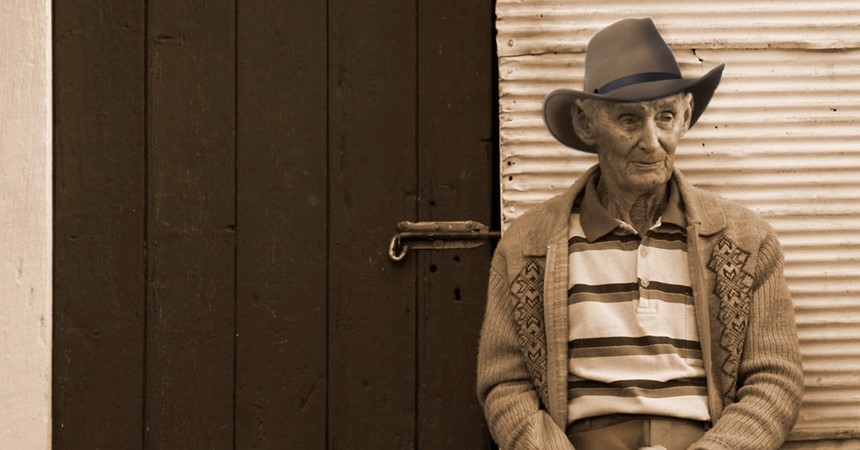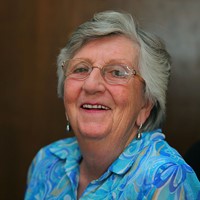A very long time ago, back when I was young, unwrinkled and still believed that I would live forever, I spent 12 years in the Northern Territory. The ink was barely dry on my teacher’s registration when I was assigned to a place called Port Keats, now known as Wadye. My idealism wilted momentarily when I stepped out of the plane on the Darwin runway and the heat rose up like a wall. It definitely sagged when the sandflies from the appropriately named Sandfly Creek sent out messages that there was fresh southern blood up at the Mission. But I survived, eventually moving on to the football-famous Bathurst Island, back to Port Keats and later on to Daly River.
Amongst other things, my years in the NT have left me an experience of waiting that is very Australian – waiting for the Wet. Because I have a religious kind of bent, this always reminds me of the prophet Isaiah. Even though he lived close on three thousand years ago, I like to picture him sitting on an Australian homestead verandah, wearing a battered old Akubra, waiting for the rain.
We are not used to thinking scripturally or theologically in Australian imagery and words, but Isaiah’s writing bubbles over with words that could have originated in outback Australia. “Let the wasteland rejoice and bloom. Let the wilderness and dry lands exult.” (Is 35:1) His God-longing found expression in the landscape. “Let the clouds rain down the Just one.”(Is 45:8) While Isaiah’s words speak of the Messiah they manage to capture the desire that underlies the waiting for the relief of rain.
If the Church can be said to have a Waiting Season, then that time is Advent. While the retail world would have us believe that Christmas is about shopping – for food, alcohol, gifts, camping gear, toys − whatever they sell and can get us to buy, the Church tells us it’s Advent, and focuses on God’s coming into the world − then, now, and in the future.
What are we waiting for? We say that we are waiting for the birth of Christ, but that has already happened. Daily, often mindlessly, we can find ourselves waiting for God. It’s just there in us − the instinctive prayer for help, the desires that no relationship or shopping spree can quite fill.
It’s a struggle to recognise that God is touching us, speaking to us, challenging us, loving us in all the contradictory Christmas confusion of school break-ups, a multitude of Father Christmases, end-of-year gatherings, cards, presents, lights, trees, Christmas songs, cribs, nativity plays and whose turn it is to ‘do’ Christmas this year.
Prophets like Isaiah put words and images around our yearning that God be a visible and physical part of our lives. They spoke of roads needing to be cleared, mountains to be levelled to make way for a king. They said that when the Messiah came, things would be so wonderful, so peaceful, that a child could play with a poisonous snake as though it were a puppy or a kitten, that wolves and lambs would be able to graze in the same paddock.
The Gospel writers spoke about Jesus as the Word of God, a collection of specific letters that gave a name to the un-nameable God, a word that makes us feel we know God because we can name God. John spoke of Jesus as a Light that shines in the darkness.
It was Luke who gave us Jesus as a baby. In a story about a badly timed census, a stable, shepherds and angels, Luke creates a scene that speaks to our hearts and human experience. The multiplicity of detail reveals Luke’s struggle to express the overwhelming wonder of God-with-us, that being a person is wonderful, that we feel best about the gift of life when we belong to a family.
Christmas says that God feels the same way about us. God just loves us. God chose to be one of us. We call it Incarnation. Occasionally I read an impassioned plea by someone urging us to “put Christ back into Christmas”. But isn’t that where Jesus already is – in the efforts people make for peace, in families that try to live in harmony, in compassion for the disadvantaged?
Every Christmas celebration, whether it is big or intimate, a cold weather feast or a seafood spread on the patio, is back lit by concerns about global warming, ongoing tensions in the Middle East, the ever-present threat of bushfires and newspaper reports of family violence.
And yet we live in hope. Hope that the government will live up to its promises. Hope that our children will be healthy and happy. Hope that there will be an end to the reports of bloodshed that dominate the evening news. Hope that the drought will break. Hope that peace will come to the land of Jesus’ birth. Christmas cards are sent to, and arrive from, people who have been part of our lives at some stage and sometimes still are. We wish them happiness, good health, safe travel, peace.
Like the Israelites of old, we wait in hope for God to come into our lives and fulfil our deepest desires. Maybe this Advent we could carry Isaiah’s Top End image with us: “Lord, turn the dry and stagnant places of my life into a lake brimming with the freshness of bird life and fish. Amen.”























































































